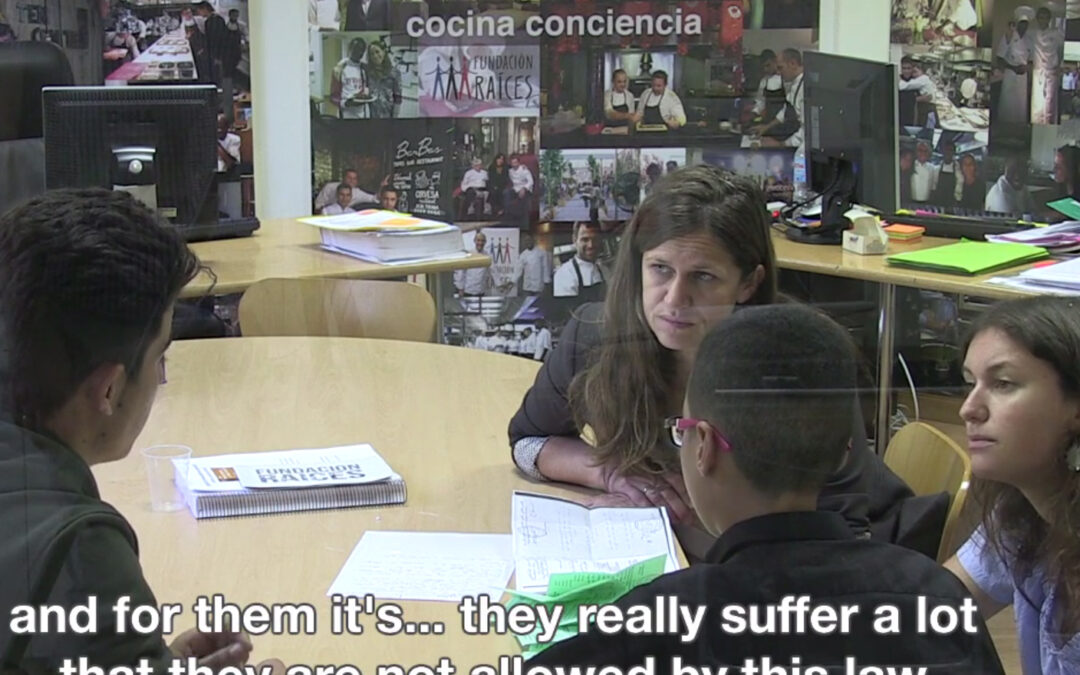
Apr 25, 2018 | Events, News, Video clips
Today, the ICJ-European Institutions held the final event of its EU and OSI funded FAIR project (Fostering Access to justice for Immigrant children’s Rights) in the European Parliament in Brussels. Two videos have also been produced.
This is the closing event of a two-year long project, which aimed at strengthening access to justice for migrant children in the EU.
Migrant children in the EU face violations of their human rights every day.
Lack of access to their families, to information, guardians and legal assistance, lack of access to housing or education, unlawful detention – are few examples of what the children suffer.
The event in the European Parliament was hosted by four political groups and three Members of the EP took part in the panel discussions, on challenges migrant children face in their access to justice and on ways forward and what the EU could do to further advance the rights of some of the most vulnerable people at EU territory.
The panel discussions also included specific cases that national lawyers are dealing with in Italy, Greece, Germany and Ireland on behalf of migrant children.
Julien Makalu, a young engineering student shared his own experience when he arrived to Greece as unaccompanied minor some years ago.
During the FAIR project, the ICJ-European Institutions:
The FAIR project co-funded by the Rights, Equality and Citizenship Programme of the European Union and OSIFE.
Download the flyer and agenda of the event here:
Universal – A2J Migrant Children Flyer – 2018 – ENG (Flyer)
Universal – A2J Migrant Children Agenda – 2018 – ENG (Agenda)
Watch the videos of the FAIR Project and the FAIR Project’s retreat
From 4 to 8 October 2017, 19 lawyers from Bulgaria, Germany, Greece, Italy, Ireland, Malta and Spain met together and with experts to strategize about their cases of access to justice for migrant children and on accessing international human rights mechanisms. The workshop took place on the French border near Geneva, allowing UN treaty bodies experts and members to participate.
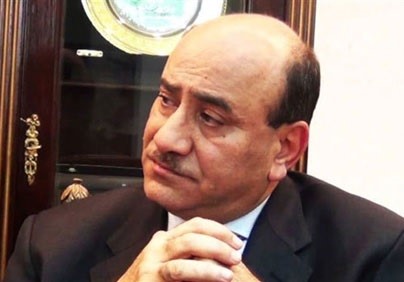
Apr 25, 2018 | News
The ICJ today called on the Egyptian authorities to quash the conviction of, and immediately release Hisham Geneina, a former judge and former head of the Central Auditing Authority in Egypt.
A Cairo military court convicted Geneina on Tuesday 24 April and sentenced him to five years in prison for “publishing false information harmful to the national security.”
The charges were related to a media interview in which Geneina criticized the interference of the Egyptian authorities in the election process and referred to the existence of documents that incriminate political and military leaders since 2011, including in cases of human rights violations.
The first hearing of the military trial took place on 18 April.
At the defense request, it was adjourned to 20 April so that the lawyers can have access the case file. The judgement was issued 4 days later.
“Genina’s detention, prosecution and conviction solely for peacefully and legitimately exercising his right to the freedom of expression is a testament to the length to which Egypt’s military and government would go to silence critical voices,” said Saïd Benarbia, ICJ MENA Director.
“After a grossly unfair trial before a military court that he should never have been prosecuted before in the first place, Egyptian authorities must stop the charade and immediately and unconditionally release Hisham Geneina,” he added.
Egypt – Geneina – News – Webstory – 2018 – ARA (Arabic translation in PDF)
Background
Hesham Genena was arrested on 13 February following a media interview in which he claimed, among other things, that the former Chief-of-staff Sami Annan was in possession of documents incriminating the country’s political and military leadership.
One day before his arrest, the military spokesperson said that Genena’s statement casts doubts on the State and its institutions in the time where the armed forces are combating terrorism in Sinai.
He added that the armed forces will use their rights as provided for in the Constitution and the law to protect national security, and that they will refer the matter to the relevant authorities to take legal action.
According to information provided by his lawyer, Geneina is currently in solitary confinement in the Cairo Appeal Prison and his health condition is deteriorating due to injuries related to a physical attack against him on 27 January, for which he needs surgical intervention.
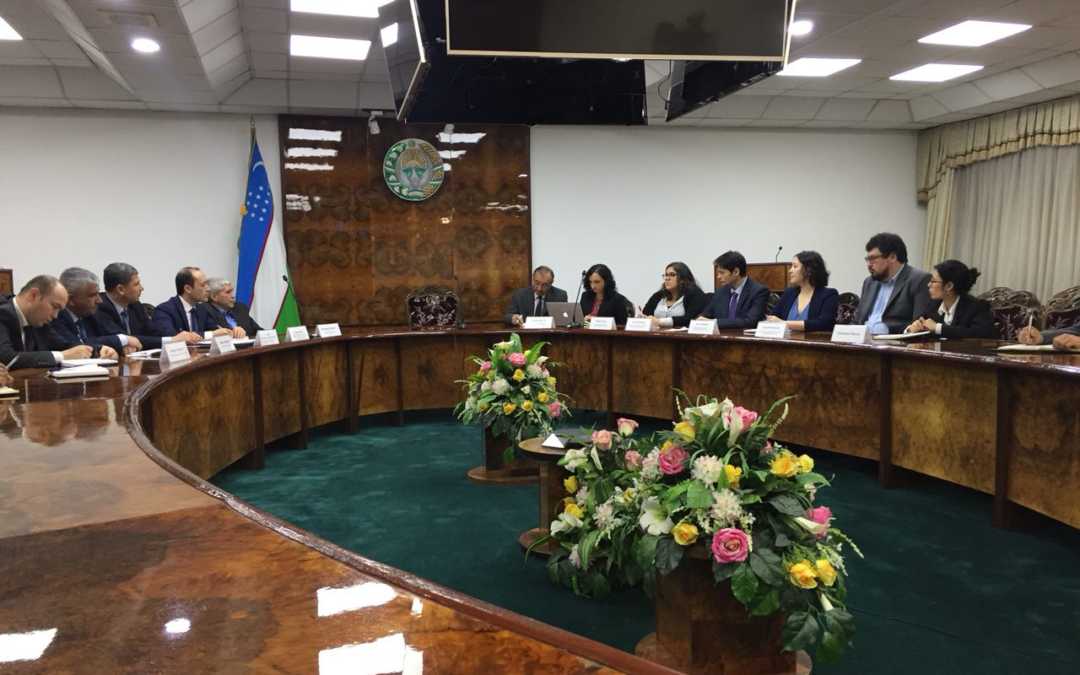
Apr 17, 2018 | News
From April 16 to 20, the ICJ is conducting a research mission to Uzbekistan to identify the priority ESC rights issues which will be the focus of its project on access to the economic, social and cultural (ESC) rights (ACCESS project).
During the mission, ICJ experts will meet with key stakeholders, including relevant State bodies, CSOs, legal experts, international organizations in Uzbekistan and other actors to discuss legal and practical aspects of ensuring access to justice for ESC rights.
During the meetings, among others, the following issues will be addressed:
- current legislation ensuring ESC rights in Uzbekistan;
- ongoing and planned reforms in ensuring ESC rights;
- legal protection of ESC rights and barriers to their enjoyment;
- discussion of possible legal, practical aspects related to access to justice in the field of ESC rights.
The ICJ will rely on international standards in the area of ESC rights, in particular, the International Covenant on Economic, Social and Cultural Rights (ICESCR), to which Uzbekistan is a party.
The results of the mission will form a baseline report which will inform the construction and implementation of the ACCESS project.
The ICJ appreciates the facilitation of the Government and of the European Union, which supports the project, in arranging meetings with relevant State institutions.
Contact:
Temur Shakirov, temur.shakirov@icj.org
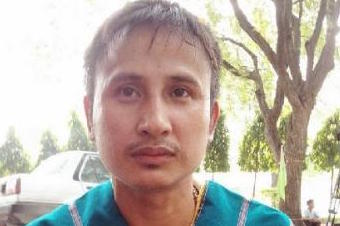
Apr 16, 2018 | News
On the fourth anniversary of the apparent enforced disappearance of Karen activist, “Billy,” the ICJ repeats its calls for the Department of Special Investigations (DSI) to assume responsibility for effectively investigating the case.
To date no progress has been made to establish the fate of Billy and the DSI has declined to take up the matter.
Pholachi “Billy” Rakchongcharoen was last seen on 17 April 2014 in the custody of Kaeng Krachan National Park officials.
At the time of his apparent enforced disappearance, Billy had been working with ethnic Karen villagers and activists on legal proceedings the villagers had filed against the National Park, the Wildlife and Plant Conservation Department, the Ministry of Natural Resources and Environment, and the former Chief of Kaeng Krachan National Park concerning the alleged burning of villagers’ homes and property in the National Park in 2010 and 2011.
“The very reason the DSI was created was to investigate complex cases of this kind, including where Government officials may be implicated in gross human rights violations that amount to crimes under international law,” said Kingsley Abbott, Senior International Legal Adviser with the ICJ.
“If the DSI continues to refuse to open a special investigation after four years of little apparent progress by the police, the DSI will risk being perceived as contributing to the pervasive culture of impunity that exists within Thailand,” he added.
This week, Billy’s wife, Phinnapha Phrueksaphan, advised the ICJ that the last time the DSI had discussed Billy’s investigation with her and her family was over a year ago.
The ICJ was further informed that on 9 April 2018, Phinnapha submitted a letter to the Director-General of the DSI seeking updates on the progress of Billy’s case and clarification as to why the DSI had not accepted Billy’s case for a special investigation.
“Thailand has a clear legal duty to continue to investigate the case until Billy’s fate or whereabouts are established and to ensure that the investigative process and any outcomes are transparent – which is especially important to victims’ families who play a crucial role in investigations,” added Abbott.
On 23 May 2017, Thailand established a Committee consisting of 18 officials, including from the DSI, to formulate policies for the prevention of acts of torture and enforced disappearance, and to investigate and provide remedies in accordance with the Convention against Torture and Other Cruel, Inhuman or Degrading Treatment or Punishment (CAT), to which Thailand is a party, and the International Convention for the Protection of All Persons from Enforced Disappearance (ICPPED), which Thailand has signed but not yet ratified.
On 26 June 2017, the Committee reportedly stated that it would consider past, pending and new cases of enforced disappearance, including the case of Billy.
However, the Committee has yet to demonstrate effectiveness in efforts to implement Thailand’s international human rights obligations.
“While any steps Thailand takes towards accountability for allegations of torture, ill-treatment and enforced disappearance is welcome, the Committee should not be seen as a meaningful substitute for establishing these as crimes under domestic law,” Abbott said.
Thailand-Billy disappearance 4th year-News-web story-2018-ENG (Full story in PDF)
Thailand-Billy fourth-News-webstory-2018-THA (Thai version, in PDF)
Further Reading
Billy’s case
ICJ, ‘Launch special investigation into enforced disappearance of “Billy”’, 6 August 2015
ICJ, ‘Strengthen efforts to solve the apparent enforced disappearance of “Billy”, 16 April 2015
ICJ, ‘“Disappearance” of Billy demands special investigation’, 17 July 2014
ICJ, ‘Thai authorities must urgently investigate Billy’s ‘disappearance’’, 28 April 2014
Draft Act criminalizing torture and enforced disappearance
ICJ and Amnesty International, Open letter to Thailand’s Minister of Justice on the amendments to the Draft Prevention and Suppression of Torture and Enforced Disappearances Act, 12 March 2018
English
Thai
ICJ and Amnesty International, Recommendations to Thailand’s Ministry of Justice on the Draft Prevention and Suppression of Torture and Enforced Disappearances Act, 23 November 2017
Human Rights Committee review of Thailand
ICJ and Thai Lawyers for Human Rights and Cross-Cultural Foundation, Joint follow-up submission to the UN Human Rights Committee, 27 March 2018
UN Committee against Torture review of Thailand
ICJ and Thai Lawyers for Human Rights, Joint submission to the UN Committee against Torture, 29 January 2018
Contact
Kingsley Abbott, ICJ Senior International Legal Adviser, email: kingsley.abbott(a)icj.org
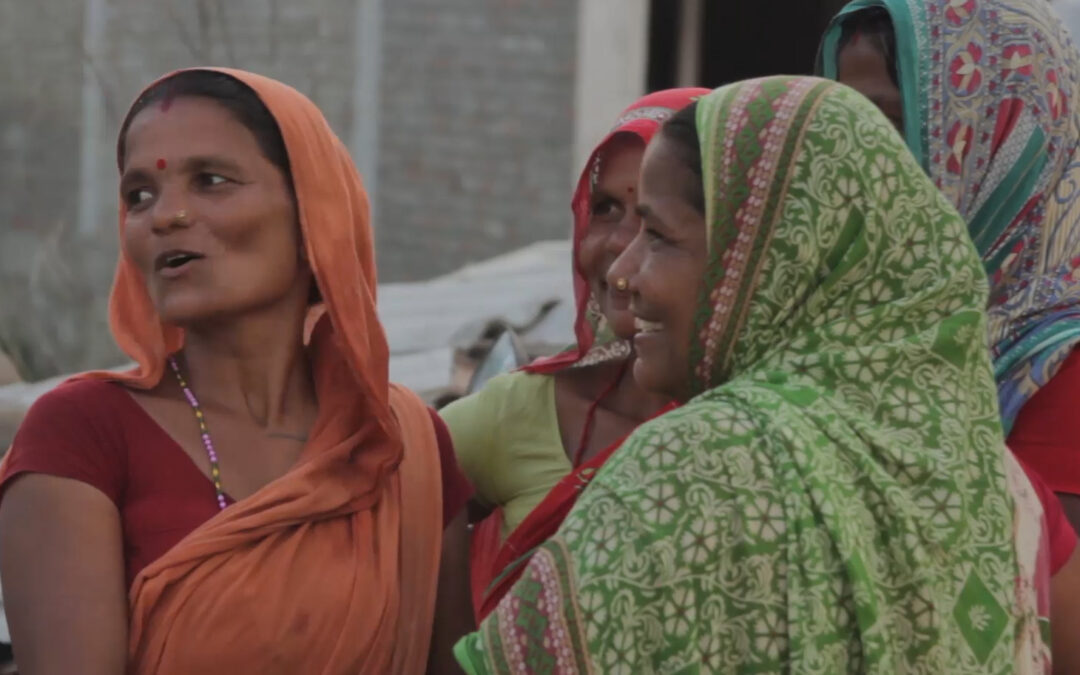
Apr 13, 2018 | Multimedia items, News, Video clips
In 2017, Nepal held its first local-level elections for almost 20 years and the first ever conducted under the new federal state structure established under the 2015 Constitution. They were significant because of the unprecedented number of women who stood as candidates and won.
Women in Nepal have experienced systemic discrimination for decades, especially those in rural areas, among ethnic minorities and marginalized groups.
These elections presented the women of Nepal with the opportunity to break through barriers that have prevented them for decades from participating in political and public life.
The Local Level Governance Act lays out the mandate and functions of newly formed local bodies.
If the recently elected women are allowed to meaningfully participate in local governance, the new law could empower them further so that they can take the lead in addressing key human rights issues, especially the human rights of women.
This video documents the campaign of Rikam BK, a Nepalese politician, belonging to the Communist party of Nepal-Maoist (CPN-M).
In the Nepal Legislative Election held on 26 November 2017, she was elected as a Sub-Mayor (NCP Maoist) of Lahan Municipal Council winning 5000 votes.
She is the chairperson of the Dalit Preservation Abhiyan Forum, in Siraha. She has been advocating the issue of land certificates in the names of both husband and wife.
She continues to call for those deprived of land rights to have equal access to land. She is also the member of National Alliance for Women Human Rights Defenders (NAWHRD).
Many of the women featured in this video are women human rights defenders who have been working to promote and protect human rights in Nepal for decades.
Many of them participated in the Regional Conference on Women Human Rights Defenders as Political Actors, which was organized by the ICJ, with the cooperation of NAWHRD.
The conference was held from 28 to 29 August 2017 in Kathmandu.
The ICJ recently released a briefing paper laying out the key points of the conference and offering a set of future actions aimed at supporting WHRDs in their role as political actors pursuing a human rights agenda.
Watch the video







